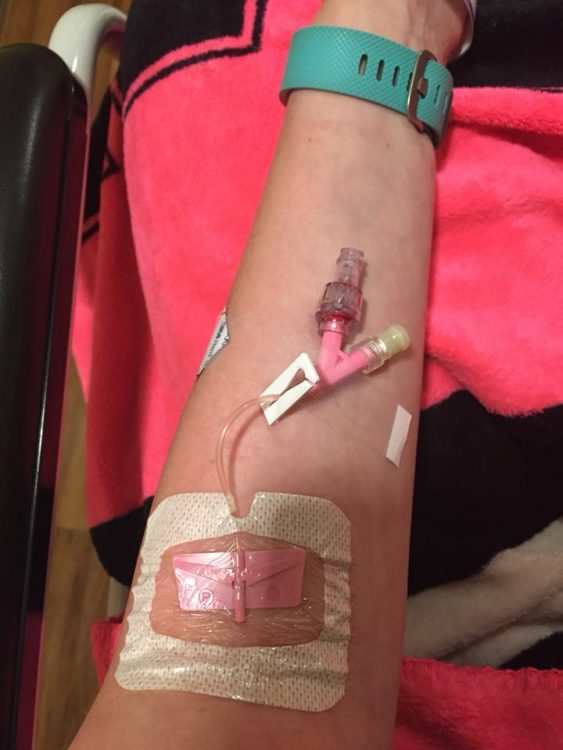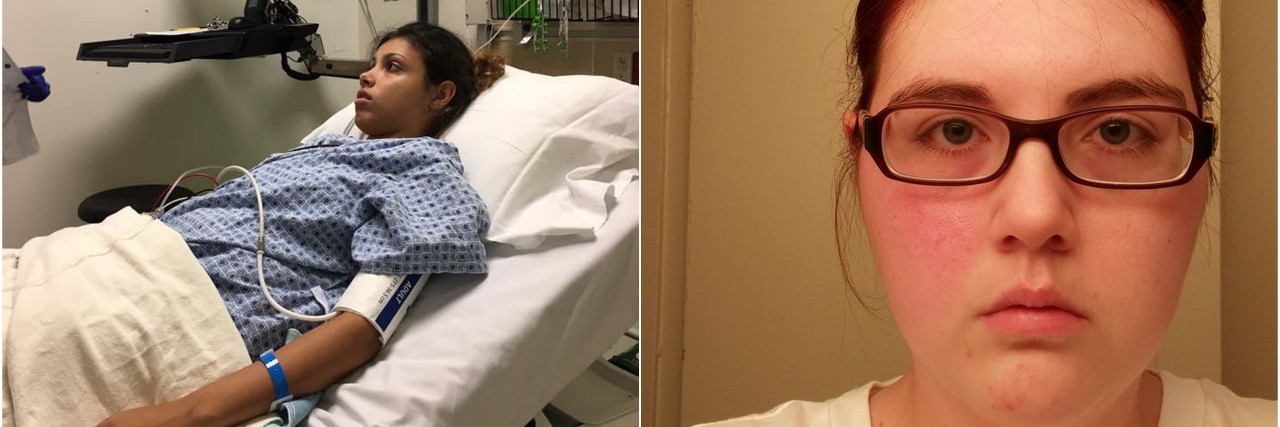13 Little-Known Symptoms of Dysautonomia — in Photos
Editor's Note
Any medical information included is based on a personal experience. For questions or concerns regarding health, please consult a doctor or medical professional.
Dysautonomia is typically described as an “autonomic nervous system disorder,” with hallmark symptoms including dizziness and fainting upon standing. But since the autonomic nervous system regulates functions throughout the body, people with dysautonomia experience a wide range of symptoms that go beyond just those that are more widely known. Although dysautonomia is not rare, it’s not as well-known as it should be, and perhaps by talking about the symptoms that aren’t often discussed, we can help raise awareness of how life-altering this condition really is.
We asked our Mighty community to share photos of little-known symptoms of dysautonomia — symptoms that aren’t talked about as much. Perhaps their experiences will ring true for you too, and show you that you aren’t alone in these symptoms. (Always check with a doctor to confirm your symptoms are related to dysautonomia and not a separate condition.)
Here’s what our community shared with us:
1. Difficulty Raising Arms Above Head
When you have dysautonomia, raising your arms above your head can be difficult since your body has difficulty pumping blood upward, leading to increased dizziness and lightheadedness.
“I have to dry my hair by sitting in front of a fan as can’t lift my arms long enough to use a hairdryer as the blood goes south!” — Karen T.

2. Harlequin Sign
The Harlequin sign, or flushing on one side of the face, can occur alone or be associated with autonomic syndromes.
“Half my face/body will blush bright red. Usually happens on days that my dysautonomia is at its worse. Everyone asks me what’s wrong, but it’s just my body.” — Elisabeth W.

3. Delayed Gastric Emptying
Because the digestive system is controlled by the autonomic nervous system, dysautonomia can cause rapid or delayed gastric emptying and other digestive problems.
“Delayed gastric emptying.” — Jo C.

4. Sensitivity to Outside Triggers
While other people may not be affected by strong scents or coming in to contact with people who are sick, these triggers can cause people with dysautonomia to experience flare-ups of their symptoms.
“The constant need to avoid being ‘normal people sick’ is even more difficult with dysautonomia. The little-known/little-discussed symptom I experience with mine is feeling super awful whenever there’s any kind of smoke or smell around. Or even the simplicity of checking the mail. It seems simple, but the symptoms I get just from walking outside leave me feeling even worse. People don’t see that it’s not simple things for us. We can get [exaggerated] symptoms quickly!” — Lyssa A.

5. Nausea and Vomiting
The gastric issues caused by dysautonomia can include nausea and vomiting.
“Nausea and vomiting. There is many a day where anytime I try to stand up I throw up. Postural change in nausea and vomiting is one of the lesser-known symptoms.” — Susan D.
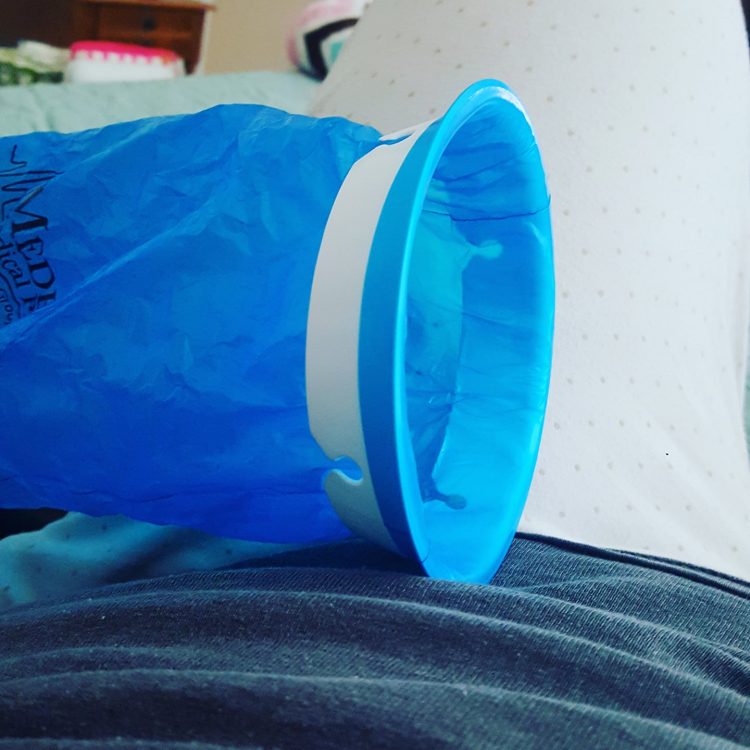
6. Concussions Due to Fainting
Passing out, fainting or even just becoming dizzy can cause you to fall, which can then lead to a concussion.
“Many trips to the hospital due to many concussions.” — Cristina M.
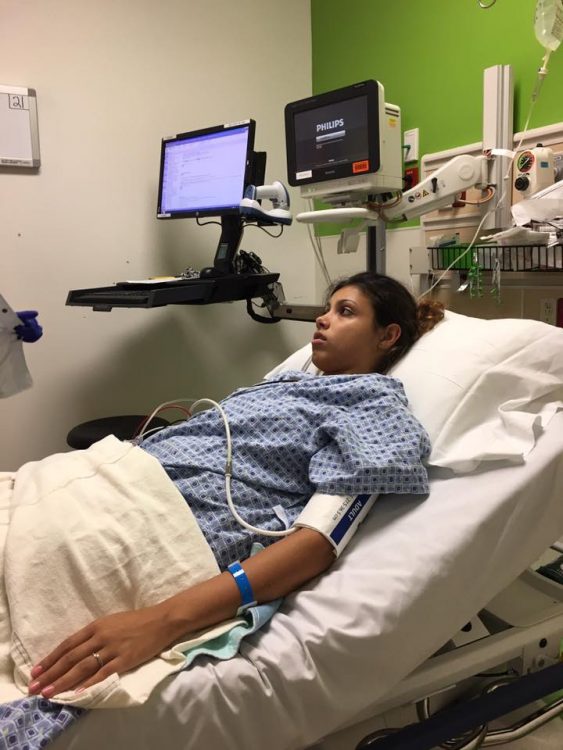
7. “Bad” Veins
The blood pressure, circulation issues and dehydration caused by dysautonomia may mean you have a difficult time getting an injection.
“There’s six sticks in this arm. I have horrible veins due to low blood volume and constant dehydration. There were 10 sticks total in that day and they couldn’t get a vein. I get a PICC line Monday.” — Dawn G.
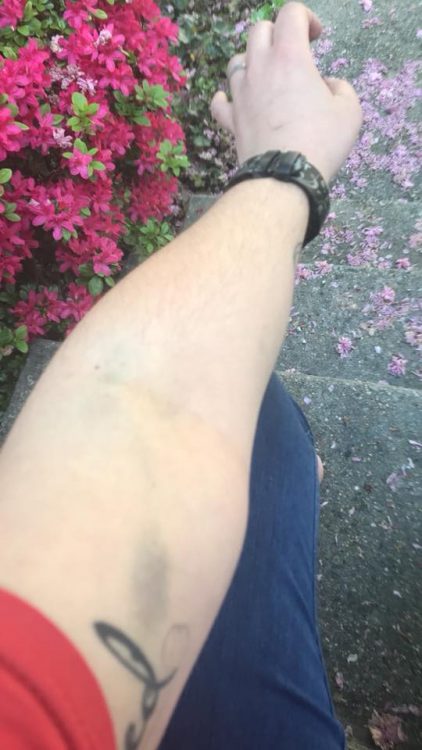
8. Blood Pooling
Blood may pool in the hands and feet since it is not being moved effectively through the body upon standing.
“Blood pooling.” — Greta T.
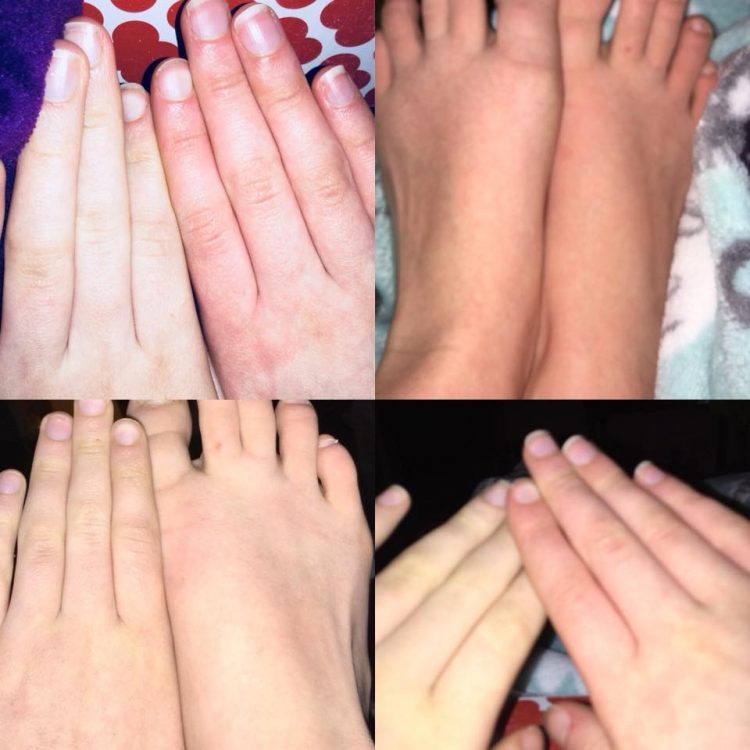
9. Seizure-Like Symptoms
Blood pressure changes can result in symptoms that appear similar to seizures; for example, convulsive syncope. (But first check with a doctor to rule out other causes of seizures like epilepsy).
“This is a result of dysautonomia. When my blood isn’t pumping correctly and I have seizure-like activity. It lasts from a few hours to a few days. This [photo] is the beginning.” — Jennifer C.

10. Symptoms Triggered by Warm Showers
Many people with dysautonomia find it difficult to take showers, since the warm water and standing position can both trigger symptoms like dizziness and overheating.
“Temperature regulation issues. After a shower that has even the slightest bit of heat, my skin turns bright red, and after awhile gradually turns blotchy. My feet also swell due to the blood pooling. Warm/hot showers are the thing that will almost always trigger a syncopal episode.” — Christina G.

11. Difficulty Regulating Temperature
Temperature regulation is a huge challenge with dysautonomia, and can lead to additional symptoms like over-sweating, dehydration, dizziness and tachycardia.
“My body can’t regulate its temperature very well. I have to be very careful when out in my garden. One summer I landed in the hospital for a few days because I was in my garden for a few days in a row, my body got too hot and sweat too much. I lost too many electrolytes which caused my phosphorus to drop dangerously low. I temporarily lost feeling in my legs, and also experienced heart attack symptoms from my heart not beating efficiently. It took a few electrolyte infusions to get things back to normal levels.” – Melisa A.

12. Bradycardia (Low Heart Rate) and/or Tachycardia (Rapid Heart Rate)
People with dysautonomia may experience bradycardia, tachycardia or swing suddenly between both.
“I have dysautonomia and was diagnosed with neurocardiogenic syncope, autoimmune disease, irritable bowel syndrome and more. To help with my bradycardia I have a pacemaker. This picture was taken when I had my first change of pacemaker, after 10 years of being diagnosed. I’m smiling because this is how I fight back. I always try to have the best attitude towards my condition.” — Maria Elena V.

13. Needing Extra Fluids
Some patients may be prescribed IV saline to treat low blood volume and dehydration. You may also be encouraged to drink lots of water.
“Needing IV fluids because I’m chronically dehydrated.” — Taylor M.
